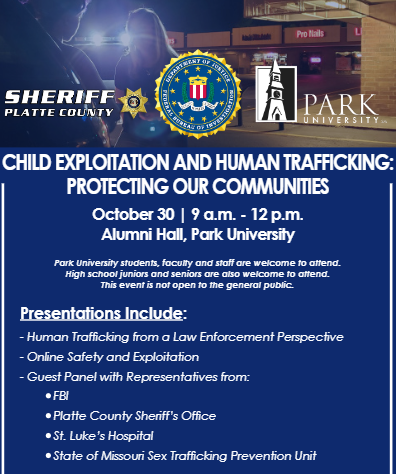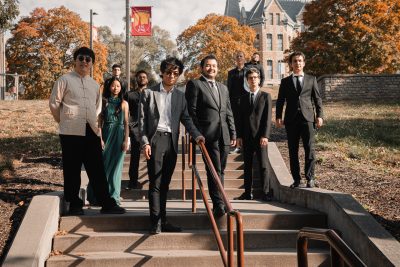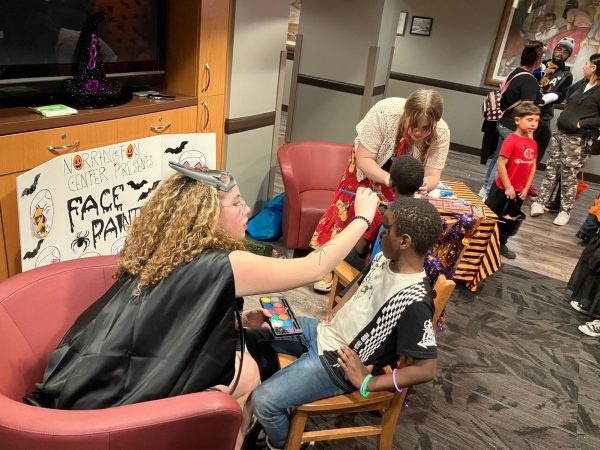Discourse of unknown Americans
Beneath the old wooden trusses of the McCoy Meetin’ House, five Americans sat in front of an audience to share discourse of unknown Americans. At 3 p.m. on October 5, all of these Americans were up on stage to tell a story that some never knew existed.
The event was organized by the English 307 class taught by Assistant Professor Stacey Kikendall, Ph.D. The catalyst for the discussion was the Cristina Henriquez’s novel “The Book of Unknown Americans.” The event, titled “Discourse of Unknown Americans,” was hoping to shed light on people from diverse backgrounds and races: their experience with moving to America, while living in America, and as immigrants or citizens.
Professor of psychology Andrew Johnson, Ph.D., was the event facilitator and introduced the other four speakers on panel which included two students and two teachers: Professor of psychology Brian Cowley, Ph.D., and Associate Professor of modern language Silvia Byer, Ph.D., student Margarita Araiza, and student Vincent Morales. Each had a personal experience to share.
“My dad tried to come to the U.S. illegally,” said Araiza. In that attempt her father was not able to gain access to the United States, but soon her dad would finally make to the U.S. legally.
“He started working at Ford and saved enough money to get an apartment,” said Araiza. Her dad would continue to save money until he could finally bring the rest of his family to the United States.
“He drove the van all the way to Mexico and picked us up,” said Araiza. “We learned English from watching The Nanny and The Simpsons.”
Although moving to the land of opportunities is considered to be a good thing, the panelists said that choice doesn’t come without sacrificing a lot.
“I remember my brother and I would cry because we missed my family back in Mexico,” said Araiza.
Each speaker had a story similar to Araiza’s that illustrated the, often invisible, obstacles they had to overcome as “unknown” Americans.
To make the audience see these invisible obstacles, Byers and Araiza began speaking in fluent Spanish. The conversation was fast paced and left most of the audience confused and unsure as to what the two what talking about.
“Is this unamerican? Or American?” said Byers, “This is how it feels when someone comes to this country and doesn’t speak the language.”
Byers unleashed a concept most natural-born Americans have never encountered. Moving to a new country and not being able to communicate with most people is an obstacle most Americans have not had to endure but, for some immigrants, it is just a part of the process of becoming an American.
“I have a friend taking his citizen’s test,” said Morales, “I think I’m a pretty knowledgeful guy and when I looked at the test I couldn’t even understand it. I think the average American would not be able to pass the American citizen test.”
For all-natural born Americans there is no test requirement for becoming a citizen. It’s a gift given at birth. So it may be eye-opening to realize how that gift isn’t easily obtained for others, and when they manage to obtain it, it comes with a new set of challenges most Americans will never know.
“The Discourse of Unknown Americans” was an event to shine light on this group of people, and on October 5, their voices were heard.
Your donation will support the student journalists of Park University. Your contribution will allow us to cover our annual website hosting costs, freeing up other funds for equipment, printing and training.





